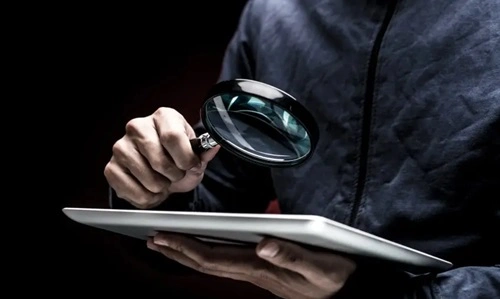The answer is Yes, private detective work is legal in India, but there is no specific law governing private detective agencies or their activities. While they are allowed to operate, their actions must adhere to the boundaries set by the Indian Constitution and other applicable laws. Detectives must avoid illegal activities such as trespassing, phone tapping, and invasion of privacy, which could lead to legal consequences.
Legal Status of Private Detectives in India

- No Specific Legislation
India does not have a dedicated law regulating private detective agencies. Unlike countries like the USA or the UK, where such agencies operate under licensing frameworks, private detectives in India are currently self-regulated and operate based on contractual agreements with clients. - Adherence to General Laws
While private detective work is legal, detectives must comply with:- Indian Penal Code (IPC): Activities like trespassing (Section 441), defamation (Section 499), or blackmail (Section 503) are punishable offenses.
- Information Technology Act, 2000: Unauthorized access to digital devices or hacking is illegal.
- Right to Privacy: Recognized as a fundamental right under Article 21 of the Constitution, detectives must ensure their investigations do not infringe on individuals’ privacy.
Common Activities of Private Detectives
Private detectives typically engage in:
- Pre-Matrimonial Investigations
- Background checks on prospective spouses to verify employment, financial status, and personal history.
- Corporate Investigations
- Fraud detection, employee background verification, intellectual property theft, and due diligence for mergers and acquisitions.
- Surveillance and Tracking
- Monitoring individuals for personal or professional reasons, such as infidelity or employee misconduct.
- Missing Person Cases
- Locating missing persons or runaway individuals for families or businesses.
- Insurance Claims
- Verifying claims to identify fraudulent activities.
While these activities are legal when done within permissible limits, exceeding legal boundaries can lead to legal repercussions.
Key Legal Challenges Faced by Private Detectives
- Privacy Concerns
- The Supreme Court of India’s recognition of privacy as a fundamental right underlines the need for detectives to respect individual privacy. Unlawful surveillance, interception of communication, or accessing personal records without consent can result in lawsuits.
- Use of Illegal Methods
- Activities such as phone tapping, hacking, or unauthorized use of GPS trackers are illegal in India. Detectives caught engaging in these practices can face criminal charges.
- Admissibility of Evidence
- Evidence collected by private detectives is not always admissible in court. For example, recordings or documents obtained illegally may be rejected under Indian Evidence Act, 1872.
- Lack of Regulation
- The absence of licensing or regulation means there is no standard code of conduct or accountability, which can lead to unethical practices.
Steps Toward Regulation
- The Private Detective Agencies (Regulation) Bill, 2007
This bill was introduced in Parliament to regulate private detective agencies in India. It proposed:- Licensing of private detective agencies.
- Ensuring detectives have no criminal records.
- Mandating compliance with a code of conduct.
- Holding agencies accountable for unlawful activities.
However, the bill has not yet been passed into law, leaving the industry unregulated.
- Industry Self-Regulation
Organizations such as the Association of Private Detectives and Investigators (APDI) in India have established ethical guidelines and provide certification to ensure professionalism in the field. While not legally binding, these standards promote credibility and accountability.
How Private Detectives Operate Within Legal Boundaries
To ensure their work remains legal, private detectives must:
- Avoid Illegal Activities
- They cannot engage in hacking, phone tapping, or breaking and entering to gather evidence.
- Obtain Client Consent
- Investigations must be initiated based on a formal contract with the client, outlining the scope and objectives of the work.
- Adhere to Ethical Standards
- Use legal methods such as interviews, public record searches, and discreet observation to gather information.
- Work With Legal Professionals
- Collaborate with lawyers to ensure the evidence collected aligns with legal requirements and can be used effectively in court.
Legal Recourse Against Illegal Activities by Detectives
If a private detective agency is found engaging in unlawful activities, affected individuals or entities can:
- File a Police Complaint: For criminal offenses such as stalking, data theft, or defamation.
- Seek Civil Remedies: File a lawsuit for damages caused by breach of privacy or defamation.
- Approach Regulatory Bodies: Report unethical practices to industry associations like APDI.
Conclusion
Private detective work is legal in India, but it operates in a grey area due to the lack of specific regulation. Detectives must navigate their responsibilities carefully, adhering to existing laws while maintaining ethical standards. As the demand for private investigation services grows, there is a pressing need for comprehensive legislation to regulate the industry, ensuring accountability, professionalism, and protection of individual rights. Until then, both clients and detectives must exercise caution to remain within the legal framework.
Hina Abbasi is Editor and a passionate sports and entertainment content writer at WinnersMaze.com. Hina’s expertise spans across a wide range of sports, and interest in many TV shows allowing her to deliver insightful analysis and compelling stories that resonate with readers.

